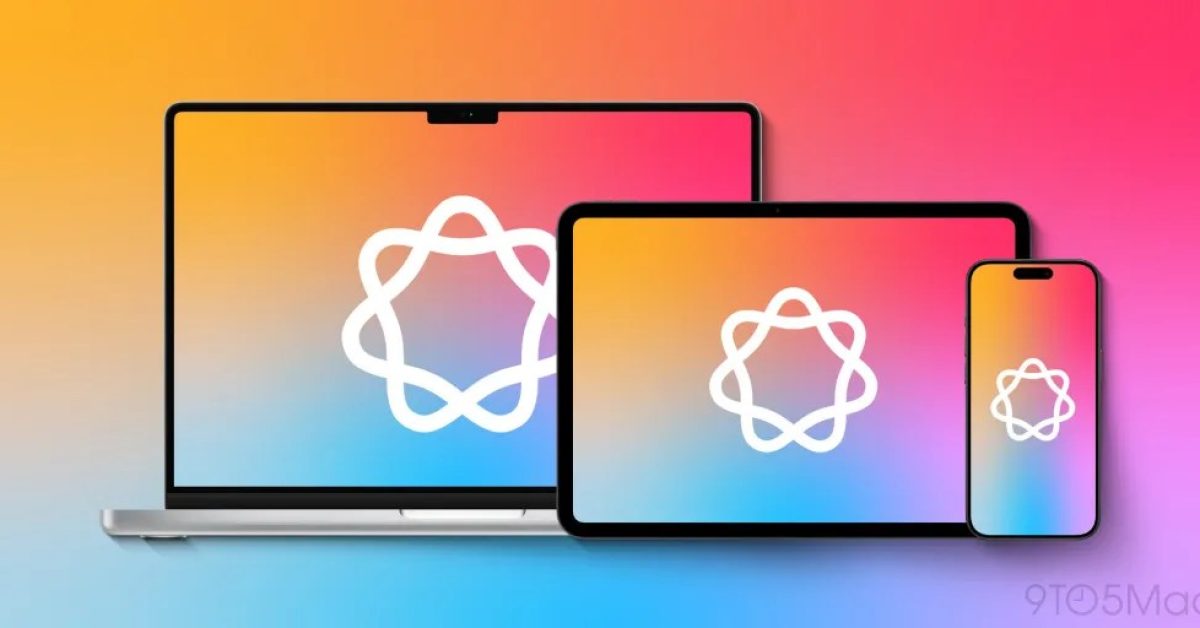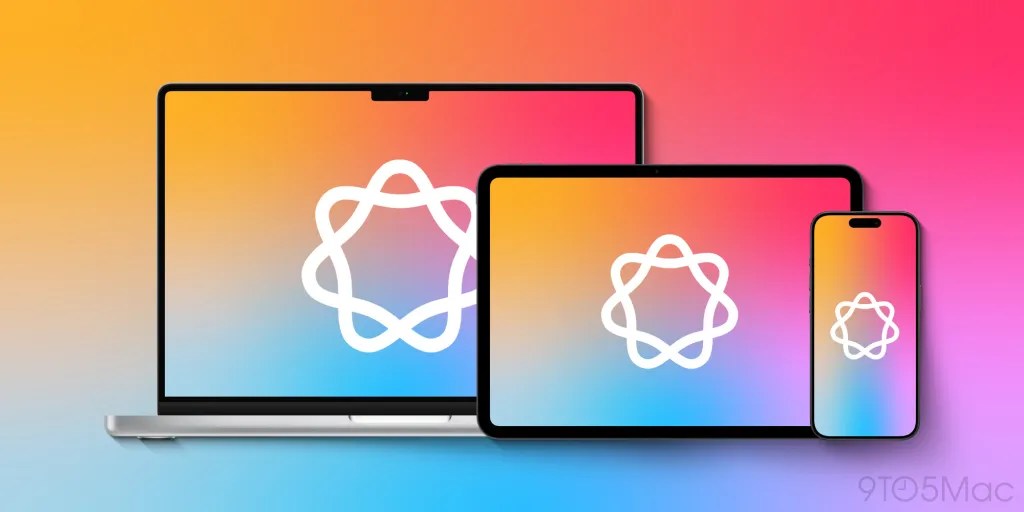
Bloomberg’s Mark Gurman reported over the weekend that some Apple employees believe that the company is about two years behind the curve on artificial intelligence.
Tim Cook didn’t directly address that during an interview with the WSJ, but did say that the company’s aim is always to be best, not first – and that this includes AI …
Is Apple really two years behind on AI?
The first point to make is that there are very few people with the ability to make this kind of assessment. If you work for Apple outside of AI projects, you likely have no better idea about the company’s AI development status than any outsider.
Even if you do work within an AI team inside Apple, the company’s famous silo approach means that you likely only know about your specific area. There have been cases of Apple engineers beavering away for years without having any idea how their work would eventually be used – and that includes people working on important elements of the original iPhone without any idea that it was for a smartphone project.
The only people who have a good idea of the overall state of AI development within Apple are senior execs with an overview of all of the various strands of the company’s work in this area, and they of course aren’t speaking to anyone.
So, the people speaking to Gurman don’t have the facts needed to form that kind of judgement.
However, it’s certainly fair to say that Siri is currently behind Google Assistant.
Siri versus Google Assistant
I’ve talked before about the misleading comparison between Siri and Alexa. The bottom line here is that Alexa is no smarter, but third parties can give the assistant specific additional skills, which is an approach which simply doesn’t scale.
However, where things get more telling is when you compare Siri to Google Assistant. There is no doubt at all that the latter is currently significantly smarter and more capable, and the difference is frankly embarrassing for Apple’s intelligent assistant.
Time after time, asking the same sequence of questions of Siri and Google Assistant reveals a massive gulf in the respective results, and that hasn’t changed much even in the latest developer beta.
One of the examples I frequently cite is two simple related queries:
Q1: How do I get from here to the Tower of London?
Q2: What are the opening hours?
Siri answers the first by opening Apple Maps and showing directions – but those default to being by car, which would be the dumbest possible way to make that journey. Car will be slower than public transit, and parking near the Tower is incredibly expensive.
Asked the follow-up question, Siri has literally no idea what I’m talking about:
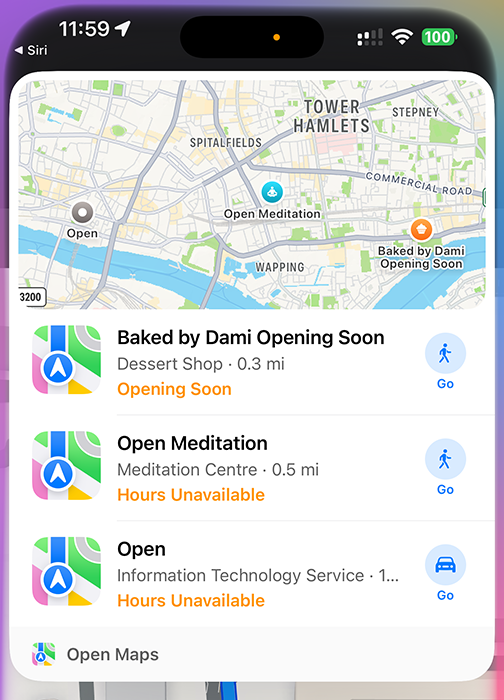
That’s a bakery I’ve never heard of, let alone visited, and two businesses which have ‘open’ in the name. It’s a ridiculous response demonstrating Siri has failed to maintain context even with the second question immediately following the first.
Google Assistant is smarter in two ways. First, in answer to the first question, it begins “The best way to reach the Tower of London from here …” and correctly shows that this is one stop on the Docklands Light Railway followed by a very short walk.
Second, when I ask the follow-up question, the assistant understands the context. It gives me a spoken reply on today’s opening hours, and displays on screen the hours for the rest of the week.
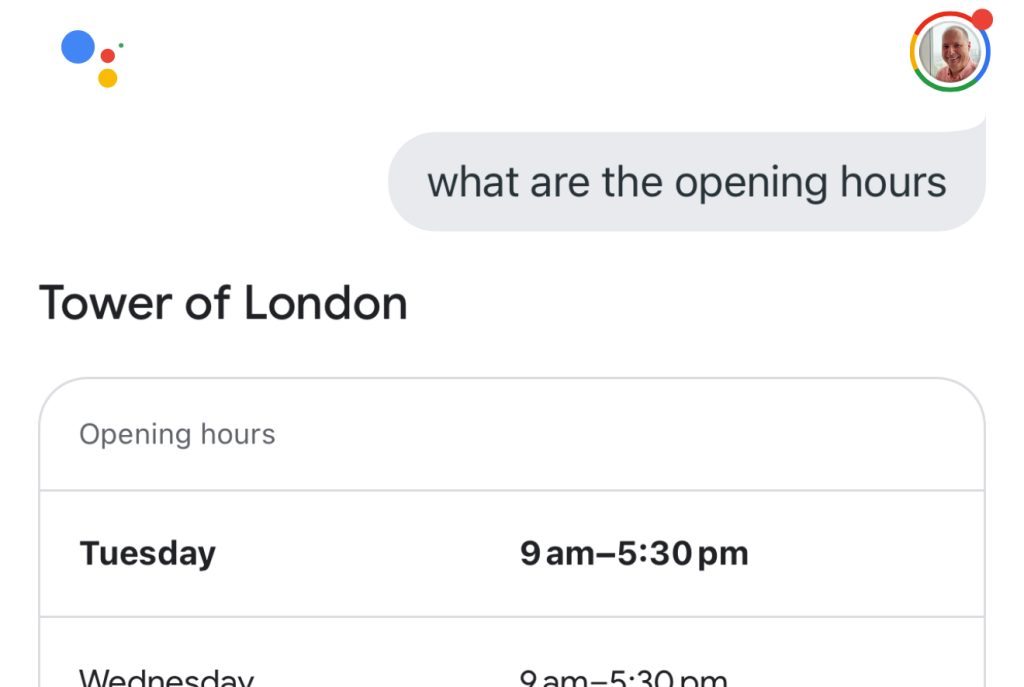
Admittedly, Siri has shown some improvement in contextual understanding in iOS 18.1. For example, if I ask for the weather in Cape Town and then ask “And what time is it there?” it does understand and give the correct answer. But this is more the exception than the rule.
But the real comparison here is with generative AI
There are plenty of cases where neither intelligent assistant matches the level of contextual understanding we’d expect of a five-year-old.
For example, asking “What time is it in New York?” followed by “And how much is one pound sterling worth there?” Siri asks me what currency I want to convert to, and Google Assistant gives me the exchange rate for Euros.
If I ask “What is currently showing at the Marylebone Theatre?” then both assistants resort to showing me web results.
ChatGPT, in contrast, gives me the US dollar rate, and has no problem answering the theater question, also providing helpful information about the play.
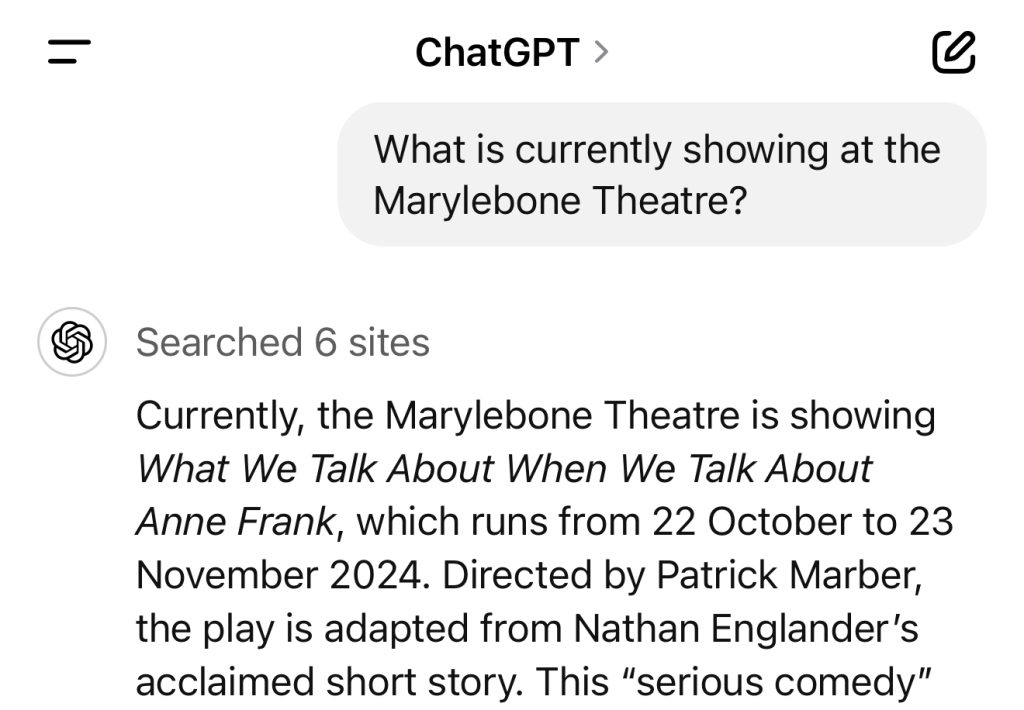
But does it matter anyway?
Probably not, for two reasons.
First, development work in an area like AI isn’t linear. ChatGPT-like AI capabilities were a distant dream until, all of a sudden, they weren’t.
The first chatbot to ever attempt to pass the Turing Test was ELIZA back in the 1960s, and it did indeed fool some people. For literally decades after that, we didn’t really see anything dramatically better than this. Then ChatGPT was launched in 2022, and a flurry of other LLMs followed. The world changed very dramatically, very quickly.
So even if Apple were two years behind now, that’s absolutely not the same as saying it will take the company two years to catch up with today’s leading-edge AI capabilities. Nor is it saying that Apple won’t overtake the current market leaders.
Now that the company has finally decided to get in on the AI game, it has more resources than any other company on the planet to throw at the problem. It can out-spend and out-hire everyone else out there. Anyone want to put money on Apple being two years behind by the end of next year?
Second, Apple isn’t ever competing with the market as a whole, in any field. The company isn’t the slightest bit interested in the fact that Samsung sells more smartphones, nor that Lenovo sells more PCs. It targets the most profitable segment of the market, and there it dominates.
So whether Apple Intelligence becomes bigger than ChatGPT is irrelevant. What matters are three things:
Can Siri match the smarts of the AI market leaders within a year or two?
Can Apple achieve this while offering the best privacy protections available?
Will Apple Intelligence help sell hardware?
I suspect the answer to all three questions is “yes.”
That second question is, I think, going to prove crucial. People are just starting to realize the huge privacy implications of AI models trained on their own inputs. Privacy is going to be seen as more and more important by more and more people as time goes on.
This has always been one of Apple’s USPs in general, and in the AI arena the company has again taken a clear lead here:
Nobody is doing more than Apple in an area likely, in time, to be seen as just as important as AI smarts.
Image: Apple and 9to5Mac
FTC: We use income earning auto affiliate links. More.
